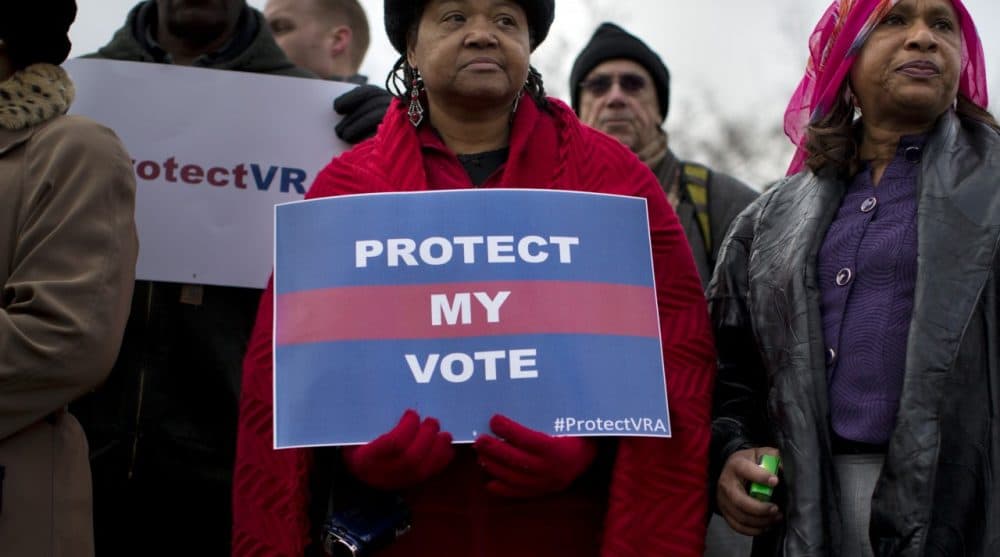Advertisement
Supreme Court Rulings Will Shape Midterm Voting
Resume
With midterm elections five weeks away, the U.S. Supreme Court will rule on election law that will affect how and when voters go to the polls in several states.
The high court will hear an appeal from opponents seeking to block Wisconsin's 2011 voter ID law from taking effect.
The justices will also consider whether to overturn a lower court's ruling that forces North Carolina to restore same-day voter registration and the counting of out-of-district provisional ballots.
This week the Supreme Court granted Ohio the right to reduce its early voting by one week. And if a judge puts Texas' voter ID law on hold, that case could also end up before the highest court in the U.S.
Rick Hasen, election law expert and professor of law and political science at the UC Irvine, tells Here & Now's Robin Young election law has been in a "churn" of legal battles since 2000, with Republican states making it harder to vote and Democratic states making it easier to vote.
Hasen predicts that over the next few years the Supreme Court is likely to stop states that are making it harder to register to vote.
Guest
- Rick Hasen, election law expert and professor of law and political science at UC Irvine. He tweets @rickhasen.
This segment aired on October 3, 2014.